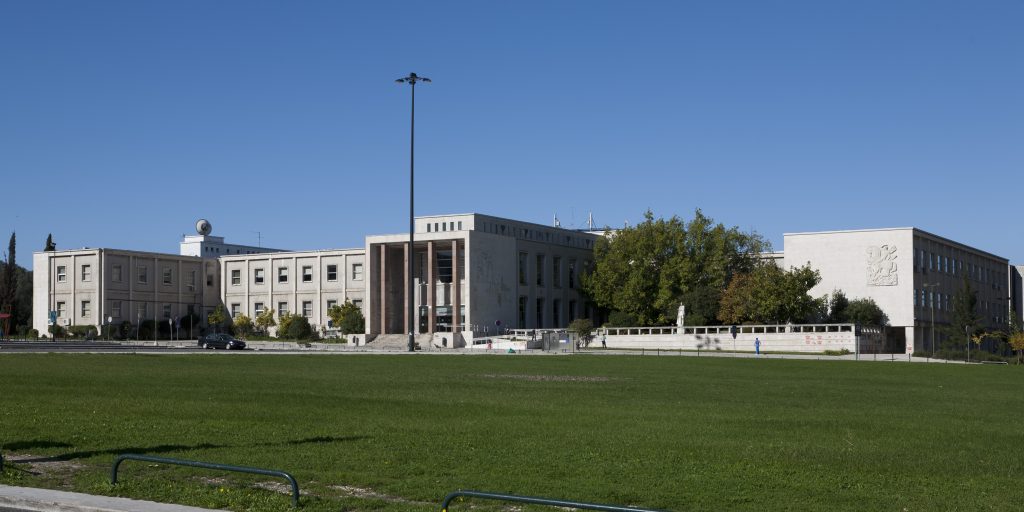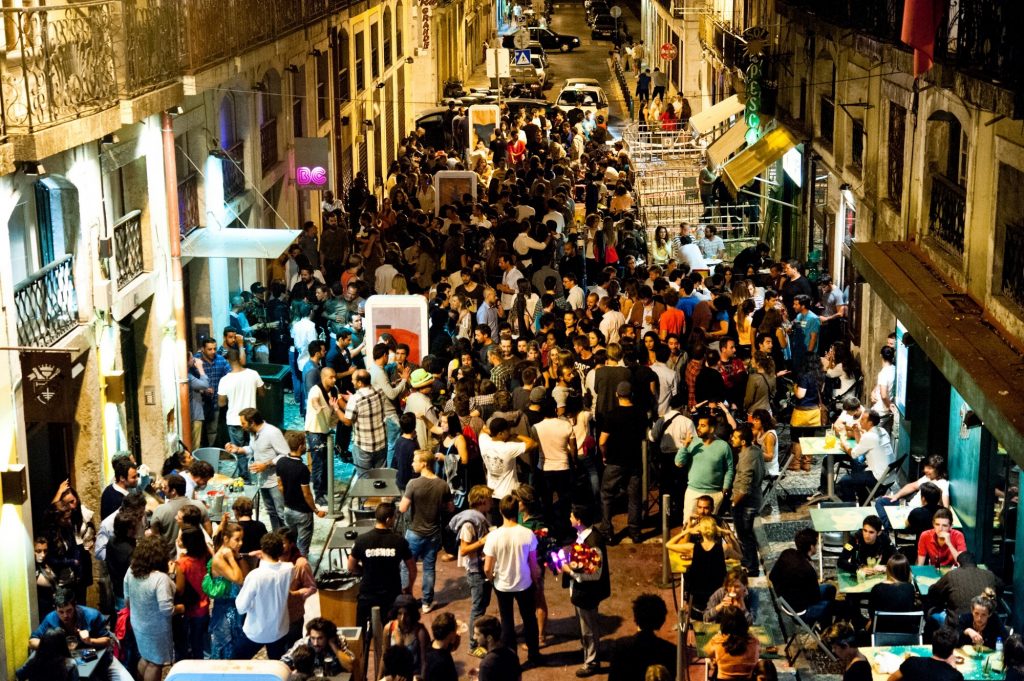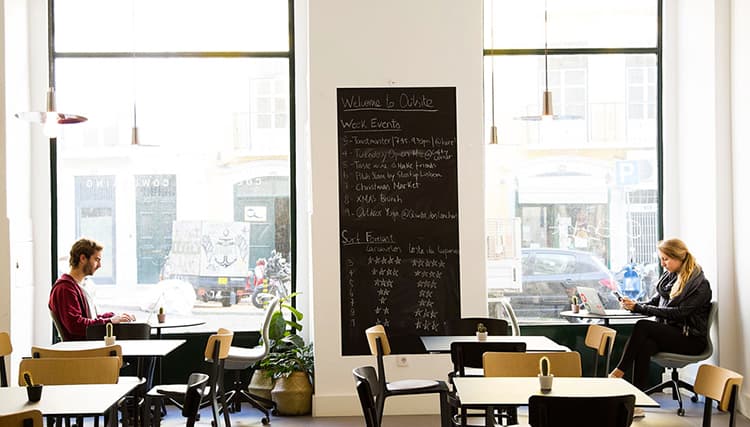Study in Lisbon 2020: Best universities and tips
As capital of Portugal, Lisbon is home of some of the best universities in the country, which attracts students worldwide and in Europe. To study in Lisbon is an experience for a lifetime. The city is inviting and sunny with one of Europe’s best nightlife.
The prices are relatively cheap comparing with other countries in Europe Union, for this reason, Lisbon receives each year more and more European students.
1.Universities to study in Lisbon.

- Universidade de Lisboa
- Universidade Nova de Lisboa
- Instituto universitário de Lisboa
- Universidade Católica de Lisboa
- Universidade Lusófona de humanidades e tecnologias
- Instituto politécnico de Lisboa
- Universidade Lusíada
- Instituto universitário de ciências psicológicas, sociais e da vida
- Universidade Europeia
- Universidade Autonoma de Lisboa
Those are the 10 most popular universities in Lisbon, where you can find several graduation courses, masters, PhD’s and Erasmus or Study Exchange. In total, there are 96 institutions of superior graduation, public and private, to study in Lisbon.
2. Student life in Lisbon.

Lisbon region has around 140 thousand students per year, for a city with 548 thousand people living in the centre, it represents a lot. In the whole Lisbon region there are 2,8 million people plus tourists, which represent a huge slice of the yearly population, around 23 million tourists along the year of 2017.
3. Cost of living to study in Lisbon.

Considering only the basics, without including extras, the living cost of a student in Lisbon is around 900 euros per month, without including the monthly cost of the University.
Here are the regular costs of Lisbon:
- Bedroom rental in shared apartment: 400 Euros per month.
- Restaurants: 10 Euros per meal.
- Local beer take away: 2 Euros per litre.
- Local beer pub: 4 Euros per 0,5L
- Metro tickets: 1,40 Euros per destination.
- Monthly expenses on Super Market: 250 Euros.
4. House conditions in Lisbon.

Nowadays Lisbon is trending, but the city was quite closed for foreigners until the 90’s. After the dictatorship breakdown in 1975 the country started to receive people slowly, nowadays the city receives over 20 million tourists per year, that made the real state market in Lisbon rise fast and the city is living in two different times:
- The old Lisbon: Cheap, old, conservative
- The new Lisbon: Expensive, refurbished, liberal
It is normal to rent a house in Lisbon with no heating or boiler – don’t fool yourself – Lisbon is really cold without this tools. For people who lives in northern countries of Europe, for example, Germany, France or UK, it’s usual to be in warm venues with central heating. In Lisbon, when it’s 5 degrees it’s cold to the bones because of its moisture and houses not prepared for cold.
If you don’t want to feel cold, look for a modern house or get yourself prepared to pay high electricity bill from November to April.
5. Night Life in Lisbon

The capital of Portugal is busy, specially during the summer, it’s easy to let yourself go with the flow, the night in Lisbon is open minded, easy to talk, make new friends and hook up with someone. It’s so cool that it might disrupt your studies, beware.
Lisbon night can be very cheap if you know where you are going, every student can afford to a night out, the best advice is to plan your night, eat cheap first and know the time to go back, other wise you’ll spend a lot eating at 4am on the streets.
6. Work and study in Lisbon at the same time.

Not everyone has the privilege of being supported by parents and it doesn’t stop you from studying. So in this case, if you’re not the “good shoes kid”, you can easily find a part time in Lisbon to help you to pay your studies expenses. Mind that you should mandatorily speak English.
7. Languages and communication in Lisbon.
The spoken language in Portugal is Portuguese. It’s not Spanish, Italian nor French, bear it in mind. If you studied Spanish once in your life you might feel more used to learn Portuguese because both has Latin roots, like Italian and French, but don’t expect that people will respect you or understand you when you speak Spanish. In any case, it’s always better to speak English.
TIP: Try to learn some basic Portuguese like: “Olá, desculpe, podes falar Inglês?”. That means: “Hi, I’m sorry, can you speak English?” It will make everything easier for you.
Many courses are guided in English but you should talk previously with the responsible department of your university to check the availability of your course.
8. Different accents of Portuguese Language.

Population of Portugal travelled the world for many years along the centuries that’s one reason Portuguese language is spoken by 270 million people, the sixth most spoken language in the world. The countries that speaks Portuguese are officially:
- Brazil: 211 million
- Portugal: 11 million
- Angola: 19,8 million
- Moçambique: 23 million
- Guiné Bissau: 1,5 million
- Cape Verde: 500 thousand
- Timor-Leste: 1,4 million
- São Tomé e Príncipe: 165 thousand
Only Portugal and Brazil has Portuguese as native language but the in other countries Portuguese is partially spoken.
9. Study in Lisbon – Overall.
Studying in Lisbon can be very attractive for many students, that’s an experience that is definitely worthwhile, there are many things to ponder though. So let’s put them in a list of pros and cons to study in Lisbon:
Cons:
- Bureaucracy
- Inefficient public services
- Cost of rental
- Portuguese is hard to learn
- Very hilly
Pros:
- Good atmosphere
- Acclaimed universities
- Relaxed
- Cheap transportation
- Nightlife
- Good food
These are some if the top things you should consider if you chose to Study in Lisbon. Was it useful? Leave a comment and share!
Enjoy and respect Lisbon!





Please your eye and plague your heart.
The chicken is never declared in the court of hawks. Cape Coast Ghana
There is not so much comfort in having children as there is sorrow in parting with them.
The devil looks after his own.
Silence means consent.
A buckle is a great addition to an old shoe.
Продажа формы всех клубов и атрибутики с символикой любимых футбольных клубов. Много товаров, футбольная форма Ливерпуль 2018 2019 купить. Быстрая доставка по РФ.
форма Ливерпуль 2021 2022 купить в Москве
форма Liverpool 2019 – https://www.footballnaya-forma-liverpool.ru/
http://google.it/url?q=http://footballnaya-forma-liverpool.ru
Спортивная одежда для футбола с примеркой перед покупкой и быстрой доставкой в любой город РФ. 45025ef